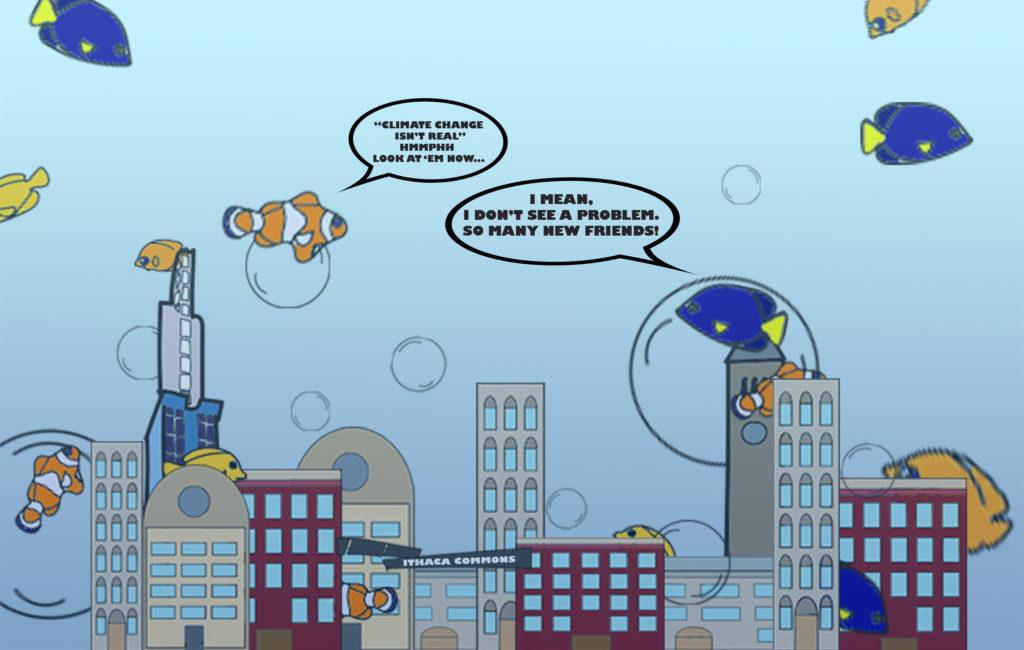It is no surprise that inaction on climate change is hurting the planet and the many living things that inhabit it. As glaciers disappear and the sea levels rise, local infrastructure, farmlands and property in the City of Ithaca are being impacted. However, local preparation for these changes are limited or just beginning, and the general knowledge around this topic remains broad.
In recent times, many are of the understanding that climate change is a reality we cannot reverse and there are no takebacks for our environmentally unconscious mistakes. Yet oftentimes, we forget to factor this broad universal understanding into the mundane since the earth still holds our feet and provides us ground to stand on. It isn’t until our sturdy ground crumbles and the mundane comes to a crashing halt that we begin to consciously think about the one thing humans are powerless against: nature and its disaster.
Natural disasters require us to proceed with caution and apply conscious thought to our interactions with the local environmental concerns related to climate change. Rebecca Evans, sustainability planner for the City of Ithaca, said flooding, droughts and climate refugees are the major concerns related to climate change in Ithaca. Because Ithaca is currently at risk of major flooding from Cayuga Inlet, Fall Creek, Cascadilla Creek and Six Mile Creek some Ithaca community members have seen an uptick in basement flooding.
Flooding is not just an annoyance the Ithaca community will have to deal with, and placing a maintenance call only plugs the temporary hole to a pervasive problem which is bound to burst. We need to be aware that flooding, as well as droughts and increased temperatures, pose threats to local farming, including crop failure, livestock heat stress and long pest seasons.
Sustainable practices answer the question of what we can be doing in the moment of crisis. But with climate change remaining an ever–present threat and increasing issue, narrowing our broad knowledge of environmental impacts to a local scale can collectively start to heal our communities and appreciate the earth for providing us with its needed stability.














